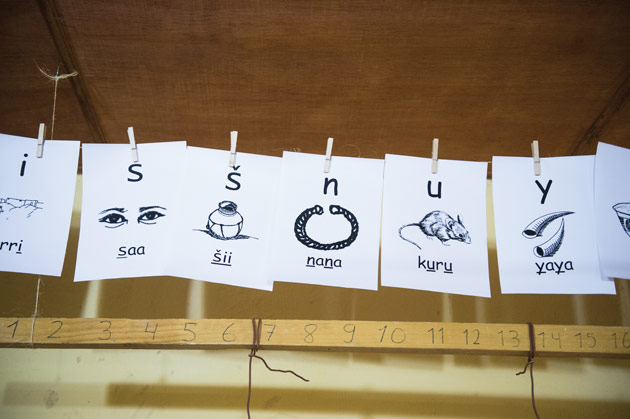
Ministry Updates
When Children Don’t Understand Their Teachers
July 22, 2014
by Interactive Supply

Imagine that you and your family’s native language is English — in fact, it’s the only language you speak. It’s the only language spoken in your entire neighborhood, the neighborhood you grew up in and your parents grew up in before you.
It’s the beginning of the school year, and you drop your child off at your local public elementary for her first day of school. All the signs welcoming her are in Japanese. So is all the class instruction. Everything, in fact, is in Japanese.
As she learns about colors and exotic animals in other parts of the world, your child comes home each day and excitedly tells you all about them. But it makes no sense to you, because you don’t speak Japanese. She would try to point out the animals to you in an English-language book, except there aren’t any such books. The few books you have lying around the house are all in Japanese, which you can’t read.
Eventually you give up on talking with your daughter about what she learned at school, because it all seems pointless.
In reality, this scene plays itself out every day in many parts of the developing world, particularly in Africa and Southeast Asia. Many nations in these areas are incredibly ethnically diverse, a patchwork of indigenous groups each with their own distinct language. Such peoples often have no educational options available to them in their own language. For reasons of practicality, nationalism, or simple racism, their governments only offer them education in an “official” language such as French or Arabic or English. In some cases, governments even prohibit education in an indigenous language.
Many education experts and researchers believe that children learn best when educated in their mother tongue — that is, whatever language they speak at home. The current issue of Horizons magazine features two TEAM workers in Chad who are serving passionately to help introduce mother-tongue literacy and education in northern Chad.
For Rivers and Becky*, the first step in promoting mother-tongue learning within one language group was helping the group realize how valuable it could be to read and write their own language in the first place. Rivers published some homemade vocabulary books that went largely unnoticed, until one fell into the hands of a prominent government official who happened to come from that language group.
“All of a sudden, this one important government official got a copy of these books and read through every page, and was floored,” Rivers said. Before long, the man had written down over 20,000 words and various traditional stories he had grown up hearing.
Now this language group has opened its first-ever school where classes are taught in their mother tongue. Students will still learn French, one of Chad’s official languages, but the goal is that eventually it would be taught as a second language, while their native language becomes primary. Studies have shown that students who are first literate in their native tongue actually do better at learning second and third languages.
Mother tongue-based learning isn’t just about making students truly multilingual or preserving their cultures. It’s also about helping children better connect what they learn in school with what is happening in their own homes and contexts, which ultimately improves education and development outcomes for their entire community.
There are practical, political and often cultural hurdles to implementing mother tongue-first education. But TEAM workers care about it because they care about the well-being of the communities they serve. Like providing clean water or medical care, improving education for children is a way to respond to God’s call in Jeremiah 29:7 to “seek the welfare of the city where I have sent you.” And ultimately, it is one more way to build relationships that can transform lives with the love of Christ.
*Last names withheld for security reasons.
Related articles


